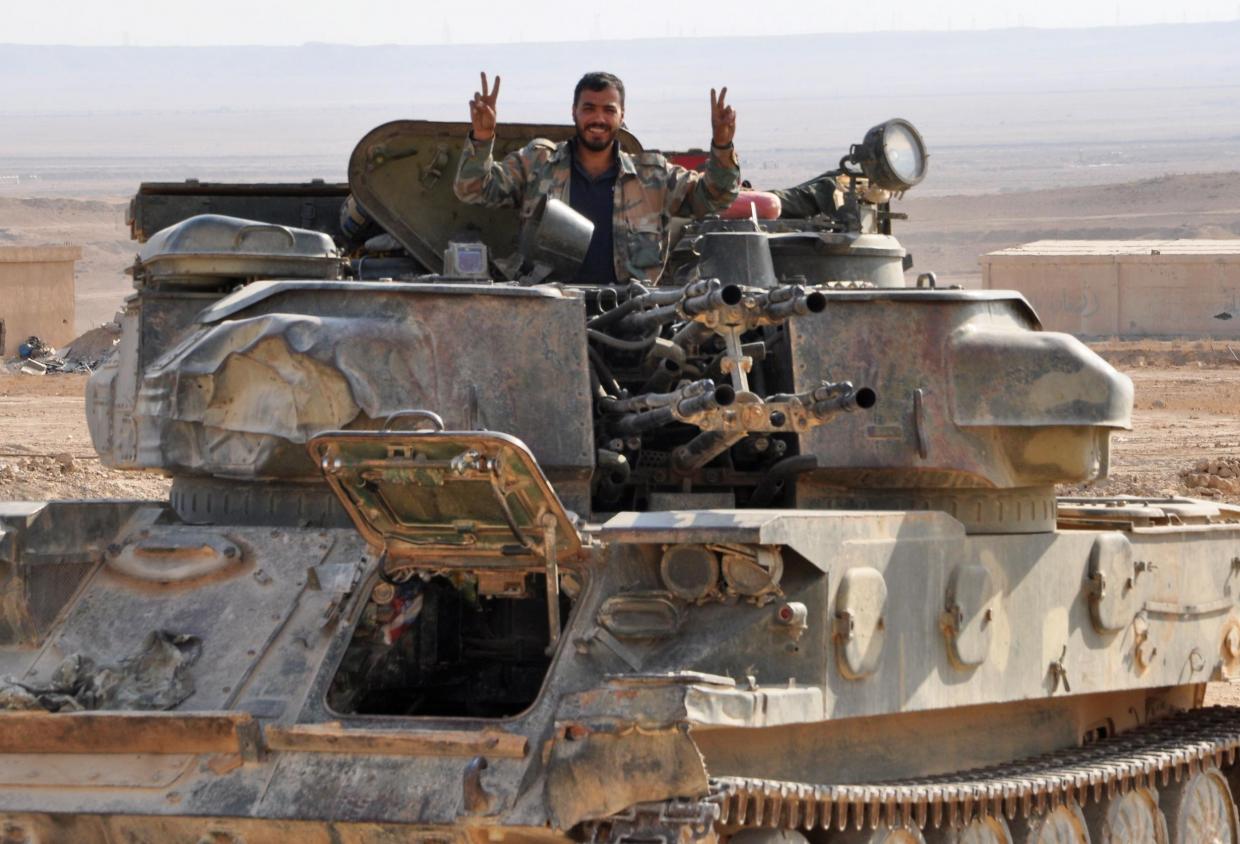by ROBERT FISK
 A Syrian soldier flashes a ‘V for Victory’ sign from his tank PHOTO/AFP
A Syrian soldier flashes a ‘V for Victory’ sign from his tank PHOTO/AFP
Debts will have to be paid for the casualties of this war, and some soldiers are becoming rather too over-confident
It’s easy to think the war is over. Until mortars from Ghouta swish over Damascus and explode in the old Christian area of Bab el-Touma with its grocery shops and restaurants. Six dead. Or when an army officer comes and says quite casually to you: “Remember Captain Walid? He was martyred four days ago.” I’ve always felt uneasy about the word “martyred” – about any soldier, or civilian, anywhere.
But that’s the way the man referred to Captain Walid Jabbour Khalil. He was a combat correspondent with the Syrian army. He carried a notebook, not a rifle, and he had a dangerous job.
I knew him, though not well. Last year, he was covering the war on the mountains of Qalamun high above Lebanon, a short, cheerful, moustachioed man who, I thought, was happier as an official military reporter than an infantryman. He had been recording how the bodies of Jabhat al-Nusra fighters lay on the edge of an escarpment just captured by the army and its Hezbollah allies.
Russian and German official combat reporters and photographers had a short life expectancy in the Second World War – their Allied opposite numbers somewhat longer – and they took their chances in battles, cruel and fair, on the side of the aggressors or the liberators. Walid Jabbour, like his colleagues, was making a record of the Syrian army’s war, as ruthless a struggle as any in the recent history of the Middle East. He was shot dead by a sniper – probably a Jabhat al-Nusra man – in the battle of Harasta in eastern Damascus. He was wearing a flak jacket. The bullet, very carefully aimed according to his colleagues, hit him just beneath the lower left side of the protective armour.
By one of those awful ironies that war regularly throws up, Jabbour and his fellow cameramen were two weeks ago making a documentary about their own work. So his death, as he scrambled through a doorway, was recorded by one of his own photographer friends. He was a Christian – how we need to note these small matters now, in a war that has plastered coloured sectarian stickers over the landscape of every Syrian map. He was 38 and married, with a young son. His commanding officer, a Damascus general, attended the funeral – he is a Muslim and it was the first Christian church service he had ever attended. He gave a speech by the coffin, he said, amazed by the music and the extraordinary vestments of the priests.
Independent for more